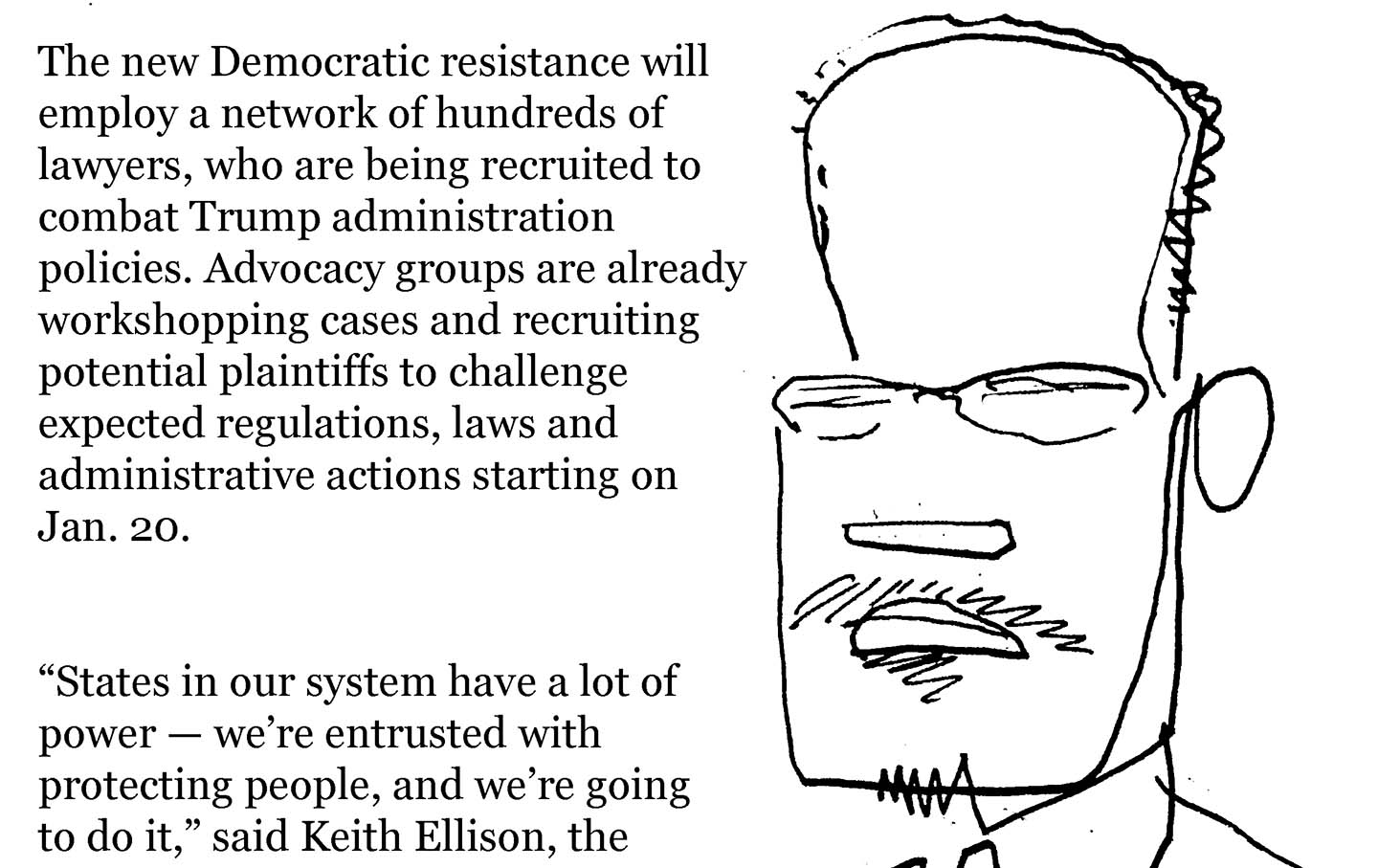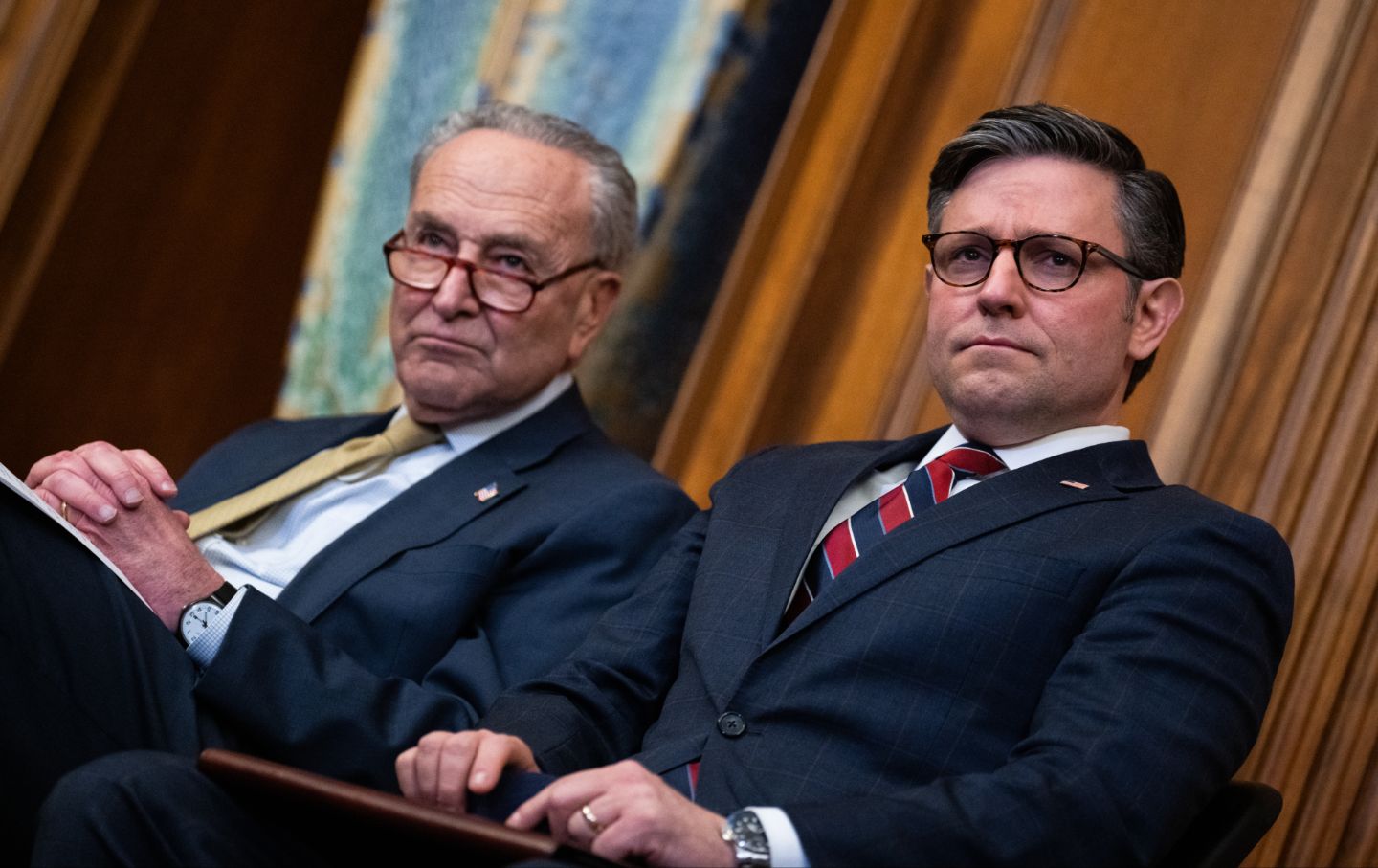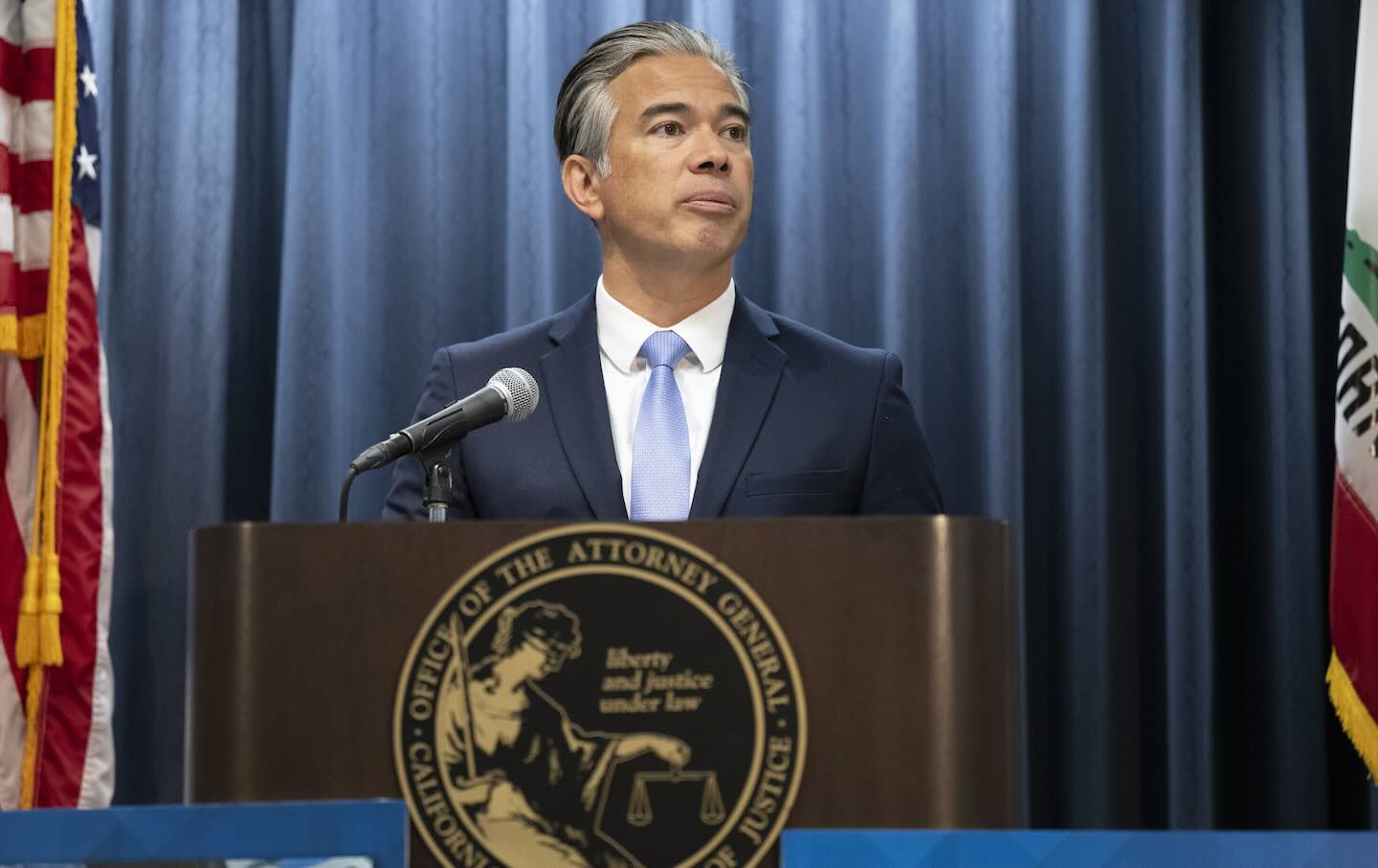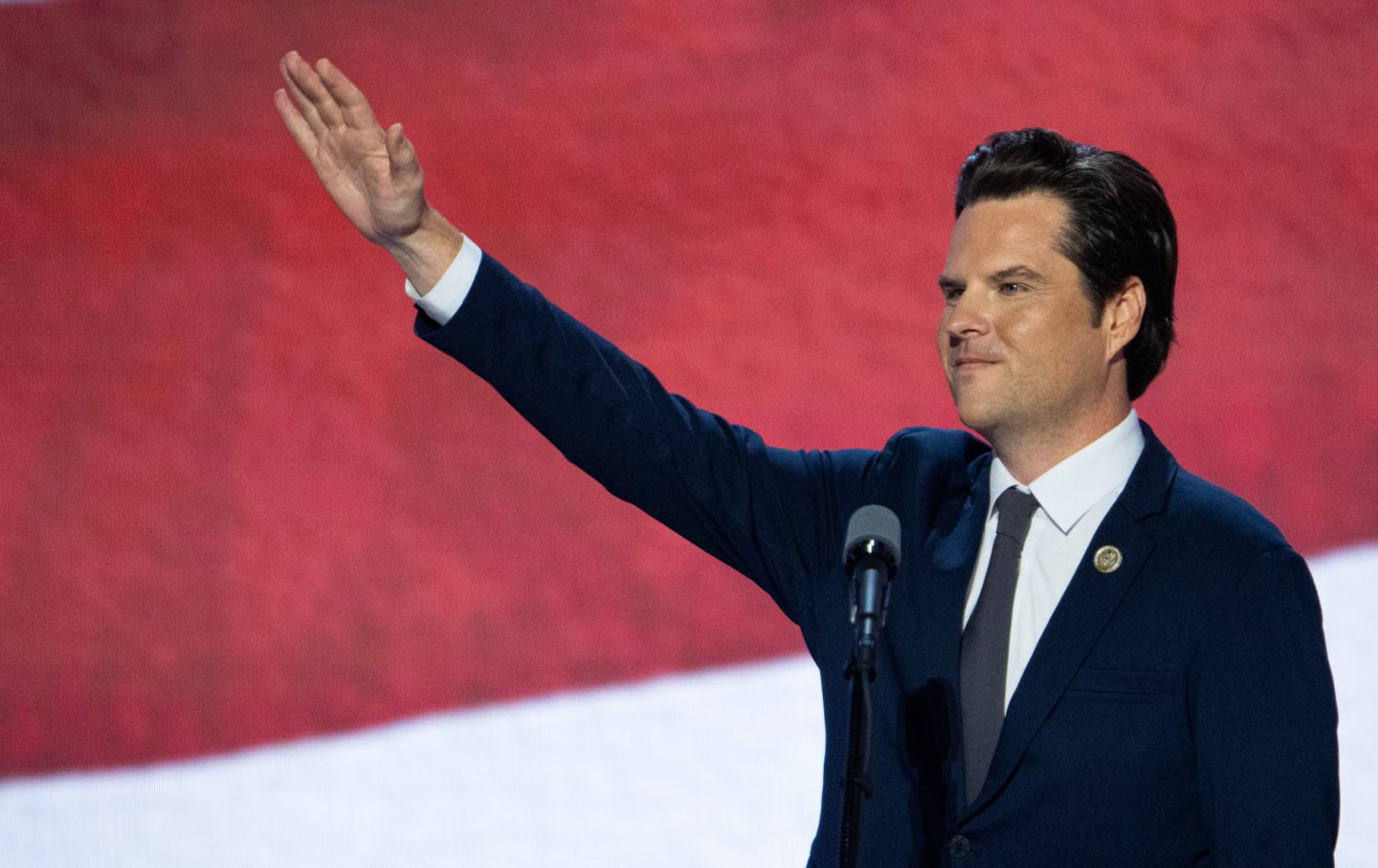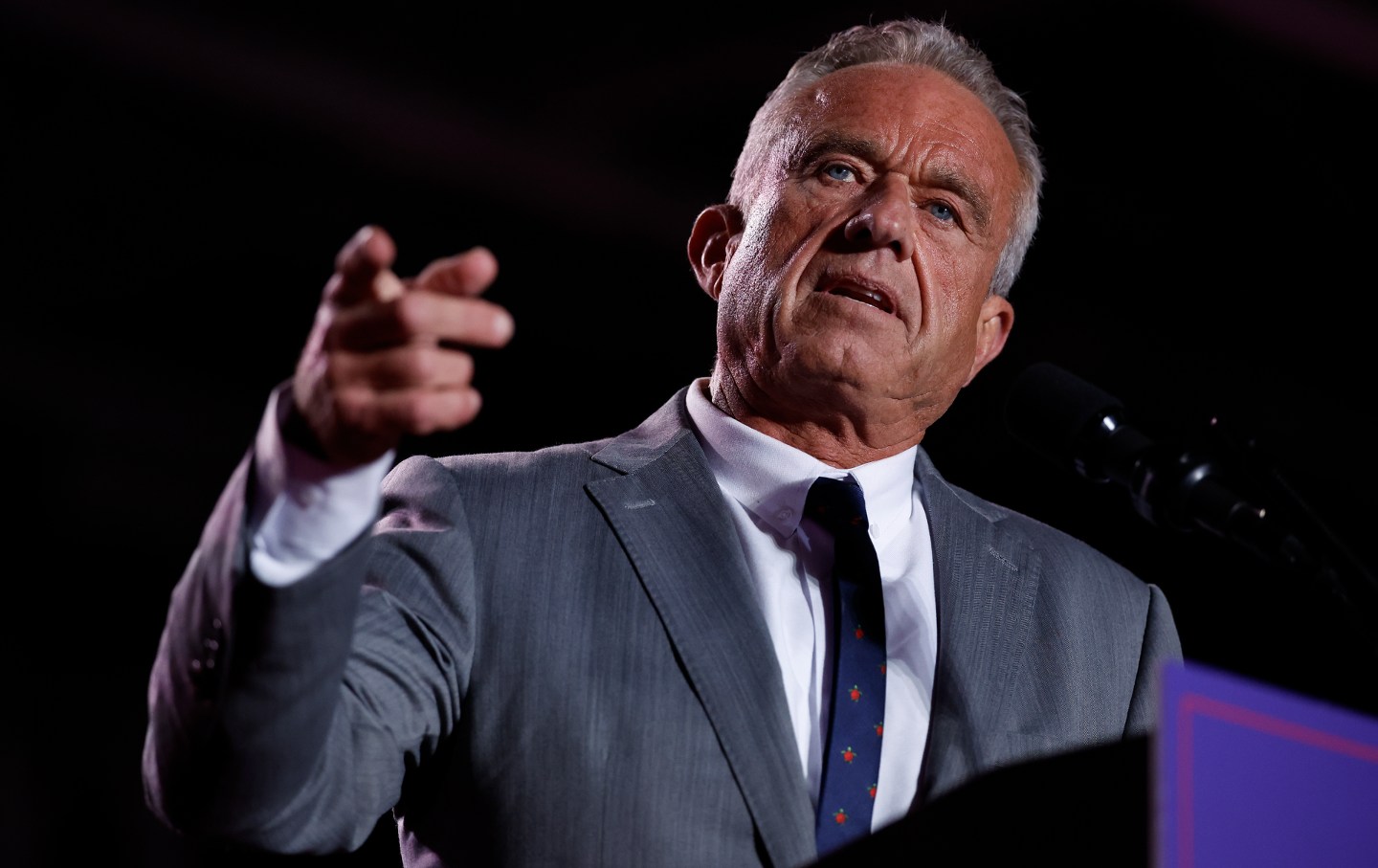Whom Should Kamala Harris Choose as Her Running Mate?
Nation writers make their cases for who the next Democratic vice presidential candidate should be.
Tim Walz, Minnesota Governor
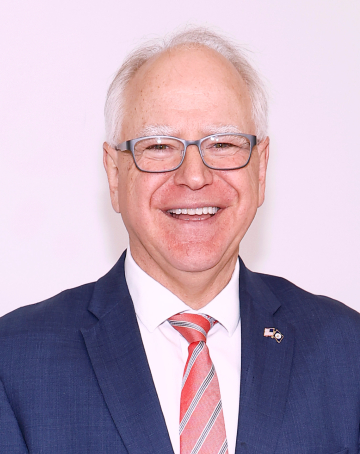
Kamala Harris has famously said, “I’m going to confess, I love Venn diagrams.” Luckily enough, a simple Venn diagram created by the pseudonymous economist James Medlock explains why Tim Walz should be Harris’s vice presidential running mate.
Walz is the Goldilocks candidate: the only possible nominee who gives off moderate white guy vibes, has top-tier TV skills, and doesn’t alienate any part of the Democratic coalition. On that last point, failing grades go to both Arizona Senator Mark Kelly (who, despite his recent flip-flop on the PRO Act, has a record of being antipathic to labor unions) and Pennsylvania Governor Josh Shapiro (who has slandered pro-Palestinian protesters as racists).
On television, Walz is wizened and reassuring, like a beardless Santa Claus, but still manages to make strong political arguments. He’s popularized the new craze of Democrats’ referring to the Trump/Vance ticket as “weird”—a terrific innovation in partisan abuse that is both funny and telling. He has a strong progressive record but also a history of winning votes in rural white communities, a combination Democrats sorely have lacked post-Obama. If MAGA-heads scream, “Build the wall,” then the only response is, “Build the Walz!”
—Jeet Heer
Josh Shapiro, Pennsylvania Governor
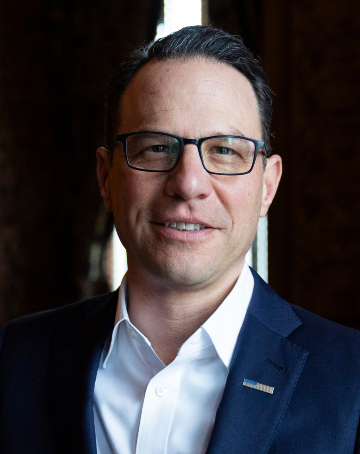
I think that the choice will likely come down to Pennsylvania Governor Josh Shapiro and Arizona Senator Mark Kelly; and, if I had to decide between them, I’d go with Shapiro.
The plus side to both of these candidates is that they have unique political brands and reputations that could help Harris in their home states in ways a running mate doesn’t always do. Kelly has the hero-astronaut thing going in his favor and a moderate voice on the border that might alienate some on the left but will likely help shore up Harris’s support by neutralizing an issue seen to be a political weak spot for her. He also has a proven track record of successfully taking on MAGA candidates in his home state. He would play very well both in Arizona and in Nevada, and likely would boost Harris’s support among working-class voters elsewhere in the country. But the huge downside of choosing Kelly is that they then open up a marginal Senate seat—and while Arizona Governor Kate Hobbs would temporarily appoint a replacement for Kelly, there would, in 2026, be a special election, with no obvious Democratic candidate to replace him.
Shapiro is a very strong communicator, has mastered the art of state politics, and has a strong network in Pennsylvania and likely in the broader Midwestern region that will be a leg up for Harris as she works to build an Electoral College majority. He took the fight to MAGA in 2022 and beat Doug Mastriano by 15 percentage points. He also has the benefit of (relative) youth, being 51 years old. In an election that Harris can now portray as being about generational change, that’s important (and an argument against my third-choice contender, Roy Cooper, who is 67). So, by a small margin, I’m thinking Shapiro is the most likely vice-presidential pick.
—Sasha Abramsky
Mark Kelly, Arizona Senator
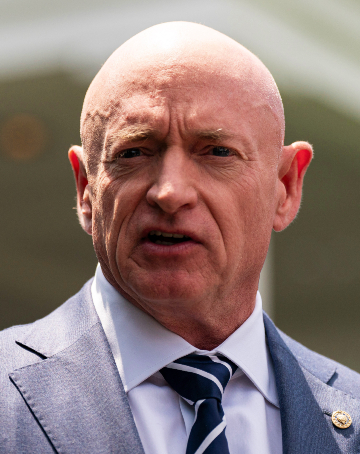
In the span of a week Democrats have gone from a funeral dirge for Joe Biden to second lining with Kamala Harris at the top of the ticket. And with $200 million to blow in 100 days, now’s the time to go drunk shopping for vice president! There’s an absolute embarrassment of riches to choose from, but I’m going to make the case for a work-wife guy: Arizona Senator Mark Kelly. Harris’s Senate bestie, Cory Booker, has already given Kelly his blessing.
Harris is married to a wife-guy: the insanely affable Doug Emhoff, who is like Tom Cruise–level excited about her (minus the Scientology). Now, she needs one at work. As a woman running against a cartoonishly misogynistic ticket, who better than a former Navy pilot turned astronaut to have her six in the gender wars? It’s not just that Kelly is a real live storybook hero; it’s also that he’s devoted to his universally sympathetic, high-profile wife, former representative Gabby Giffords, who nearly died after a gunman shot her in the head. He also comes from a two-cop family with real working-class credibility, and can deflect the “defund the police” attack Republicans are already coming at Kamala with, talk convincingly about the border, push back against gun violence, and yes even share his IVF story.
Why should any of this matter? Because the gender gap is real and growing, and in addition to white men, Democrats are losing Black and Latino men to Trump in greater numbers than they have before. The least hardened of this army of disaffected men shouldn’t be left for dead—because not only does Harris need them to win but it’s existentially important to the future of our democracy that we model alternative masculinities. Kelly has already beaten another Peter Thiel crony in a battleground state, and the additional attention he’d get as a VP nominee might even raise up Ruben Gallego, running against Kari Lake for Kyrsten Sinema’s open seat. Yes, it’ll mean a special election in 2026 if Kelly wins, but that’s two years away—and luckily, he’s got a twin brother who’s also an astronaut. (OK, the brother lives in Texas. For now.)
—Alexis Grenell
Gretchen Whitmer, Michigan Governor
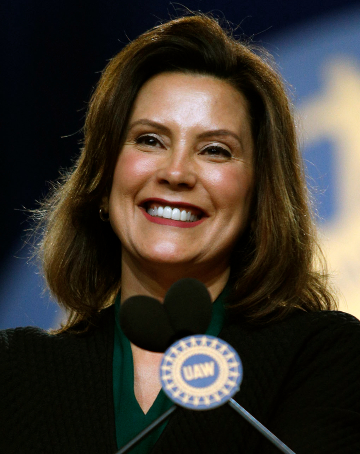
Remember that nauseating moment on November 8, 2016, when Michigan was called for Donald Trump and we knew it was over? Joe Biden built back the Blue Wall, improving on Hillary Clinton’s 47 percent vote share in Michigan to eke out a 50.6 percent win. But Governor Gretchen Whitmer did even better, racking up a 54.5 percent win in 2022.
Approval ratings indicate that Michiganders like Whitmer a whole lot more than they ever liked Biden. She has crossover appeal, in no small part because of her emphasis on voters’ kitchen-table priorities. She famously ran on a promise to “fix the damn roads” in 2018 and, in 2022, promised to “work with anyone to get things done for Michigan families.”
Battleground voters are heavily focused on inflation, the economy, and immigration, with other issues—even abortion—nowhere near as salient. Whitmer knows how to meet voters where they’re at, instead of where Democrats wish they were at. That’s exactly what the party needs.
Popular
“swipe left below to view more authors”Swipe →—Erica Etelson
As the small farmer and rural advocate: Gretchen Whitmer is my favorite—though it seems the “two women on the ticket” fear is too great for some Democratic Party leaders to consider. To me, she has the best stances and records on workers and unions, and on food and farming issues, constituencies Dems desperately need to win (or “re-win”). And she has a great presence with a totally down-to-earth delivery. I fear that Harris will return us to the Obama/Clinton years of corporate-friendly politics and policy, and I think Whitmer would be a strong buffer against that, perhaps the strongest one.
—Anthony Flaccavento
Pete Buttigieg, Transportation Secretary
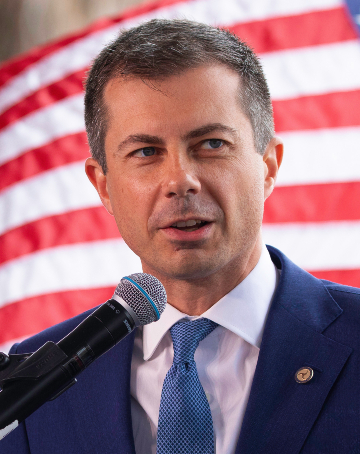
Transportation Secretary Pete Buttigieg is one of the most effective communicators in the Democratic Party. He is pretty much the only Democrat who can reliably be sent into the vipers’ den at Fox News, make a compelling argument that those viewers have likely never heard before, and come out relatively unscathed. He’s young, whip-smart, and already has a devoted fan base who believes he is the future of the party.
But that’s not why I support him as a potential vice-presidential nominee for the party. Being well-spoken and having $2 will buy you a soft drink, not a single Fox News viewer who will vote for a Democrat. I’m for Veep Pete because Buttigieg has been the Democrat most out front on the desperate need for Supreme Court reform. There is no issue facing Americans—be it abortion, gun violence, the environment, or the protection of democracy itself—that can be solved without doing something to undercut the unelected power of the Republican supermajority on the Supreme Court. Buttigieg centered court reform when he first ran for president: He was for court reform, before it was cool. And if we had listened to him, we might never have lost abortion rights, and Donald Trump might never have been crowned king by the justices he appointed.
Fox News is not a branch of government. The Supreme Court is. I want to send in Pete Buttigieg to have a difficult conversation with the six justices who think they rule this place.
—Elie Mystal
Roy Cooper, North Carolina Governor
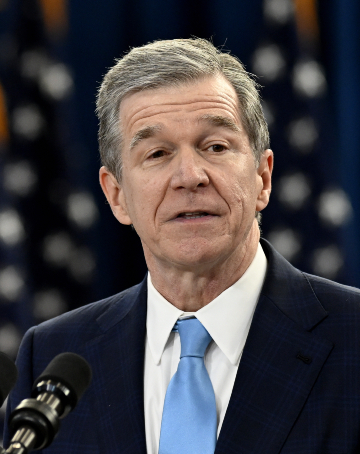
North Carolina Governor Roy Cooper, a low-key, Southern, purple-state Democratic politician, might seem to have little in common with Vice President Kamala Harris, the blue-state presumptive presidential nominee. But the two share several bonds. They have both been attorneys general, and they worked well together on issues including the national mortgage settlement in the wake of the 2008 financial crisis. More recently, they’ve been collaborating on ways to forgive the medical debt that is crushing too many families. They are said to have political “chemistry.”
But the biggest advantage they share? Neither Cooper nor Harris has ever lost a political race. Each, running for different offices, are 6-0.
Cooper, perceived as a moderate, has nonetheless vetoed 99 right-wing bills, including abortion restrictions and gun-rights expansion. Since Harris’s presumptive nomination, he has praised the vice president for her advocacy of abortion rights: “She came to Charlotte on the Dobbs anniversary and gave a passionate speech to a packed rally regarding women’s reproductive freedom. You could tell the excitement in the room.” Cooper was there.
Picking Cooper would also help shine a spotlight on the man who wants to succeed him, the racist, sexist, homophobic, xenophobic Republican Lieutenant Governor Mark Robinson. And put the former swing state—Barack Obama won it in 2008—back in play.
Cooper has withdrawn from the vice-presidential field. He reportedly feared that Robinson would attempt to seize gubernatorial power while the actual governor was campaigning out of state. (Such an effort is unlikely to succeed, but it could distract the media.)
There are other great candidates—I’m also loving Minnesota’s Governor Tim Walz’s plain-speaking Midwestern girl-dad energy—but something about the quiet charisma of Cooper appeals. For folks of a certain generation—not mine, but my parents’—Roy Cooper is reminiscent of mid-20th-century movie star Gary Cooper, a man of laconic but unassailable integrity.
Even given the potential Robinson disturbance in North Carolina, given the utter lack of integrity on the GOP ticket, Harris-Cooper could be a winner.
—Joan Walsh
Shawn Fain, United Auto Workers President
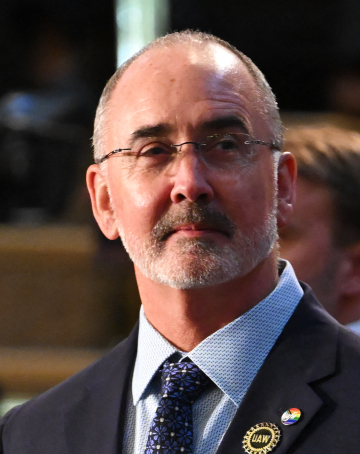
As a Midwesterner, I am not immune to Walzmania, or the argument that Minnesota’s governor would give a progressive boost to Kamala Harris and the Democratic ticket. And I like other VP short-listers—especially Michigan Governor Gretchen Whitmer, who has ably defended reproductive rights and overturned an anti-union “right-to-work” law; and Andy Beshear, the twice-elected pro-choice, pro-labor governor of a very red state who is fully prepared, as a native Kentuckian, to shred JD Vance’s “hillbilly” hypocrisy. But I want a longer list. Why not Julian Castro—the exceptionally dynamic and progressive former mayor of San Antonio and secretary of Housing and Urban Development under President Obama—or Boston Mayor Michelle Wu, a 39-year-old municipal leader who is every bit as visionary as her mentor Elizabeth Warren? More than anything, though, I want a list that’s long enough to include United Auto Workers president Shawn Fain.
The head of a union with more than a million members and retirees—a bigger “population” than that of several states—Fain secured his current post in an election where he upended the status quo with a promise to renew the militancy of one of America’s greatest labor organizations. He did just that, winning groundbreaking contracts for Big Three auto-plant workers and then launching a multiracial, multiethnic drive to organize foreign-owned factories in the South, starting with a historic win at Volkswagen in Tennessee. Under Fain, the UAW convinced President Biden to walk a union picket line, took a moral stand for a ceasefire in Gaza, and exposed Trump’s anti-union underside. Deeply class-conscious and steeped in the morality of the social gospel, Fain is as comfortable with campus activists as he is with church elders in neglected urban neighborhoods, as engaged with the second-shift factory workers of his native Indiana as he is with the thousands of educators he wowed with a fiery speech that attracted a cheering, foot-stomping response at last week’s American Federation of Teachers convention in Houston. As an unconventional and unexpected VP pick, Fain would tear apart the cynical appeals by Trump and Vance to Midwestern industrial communities with a righteous ferocity that says, “The working class isn’t the problem. Corporate greed and the billionaires’ hero, mascot, and lapdog, Donald Trump, are the problem. Don’t get played by this scab billionaire. Stand up and fight for more.” If the Republicans can nominate a billionaire, the Democrats can nominate a worker.
—John Nichols
Patsy, Cat

Kamala Harris should go full cat lady and choose my darling Patsy. We’re always hearing that the vice presidency is trivial and boring and hasn’t won a state since LBJ won Texas for JFK. Patsy would be perfect. Close to 50 percent of American households own at least one cat—that’s a huge voting bloc entirely neglected until now. Talk about upside potential! Patsy is old—76 in cat years—which would appeal to senior voters, giving them a choice other than Trump and a much better model of what age can be than that cheese-burger-addicted grumpus. Patsy is still beautiful, with an elegant figure, no hair coloring and no botox. (Can Trump say the same?) These days, Patsy mostly sleeps and purrs, but in her heyday she was a tremendous hunter, which should appeal to rural voters. And fortunately, mice can’t vote.
—Katha Pollitt
We cannot back down
We now confront a second Trump presidency.
There’s not a moment to lose. We must harness our fears, our grief, and yes, our anger, to resist the dangerous policies Donald Trump will unleash on our country. We rededicate ourselves to our role as journalists and writers of principle and conscience.
Today, we also steel ourselves for the fight ahead. It will demand a fearless spirit, an informed mind, wise analysis, and humane resistance. We face the enactment of Project 2025, a far-right supreme court, political authoritarianism, increasing inequality and record homelessness, a looming climate crisis, and conflicts abroad. The Nation will expose and propose, nurture investigative reporting, and stand together as a community to keep hope and possibility alive. The Nation’s work will continue—as it has in good and not-so-good times—to develop alternative ideas and visions, to deepen our mission of truth-telling and deep reporting, and to further solidarity in a nation divided.
Armed with a remarkable 160 years of bold, independent journalism, our mandate today remains the same as when abolitionists first founded The Nation—to uphold the principles of democracy and freedom, serve as a beacon through the darkest days of resistance, and to envision and struggle for a brighter future.
The day is dark, the forces arrayed are tenacious, but as the late Nation editorial board member Toni Morrison wrote “No! This is precisely the time when artists go to work. There is no time for despair, no place for self-pity, no need for silence, no room for fear. We speak, we write, we do language. That is how civilizations heal.”
I urge you to stand with The Nation and donate today.
Onwards,
Katrina vanden Heuvel
Editorial Director and Publisher, The Nation

